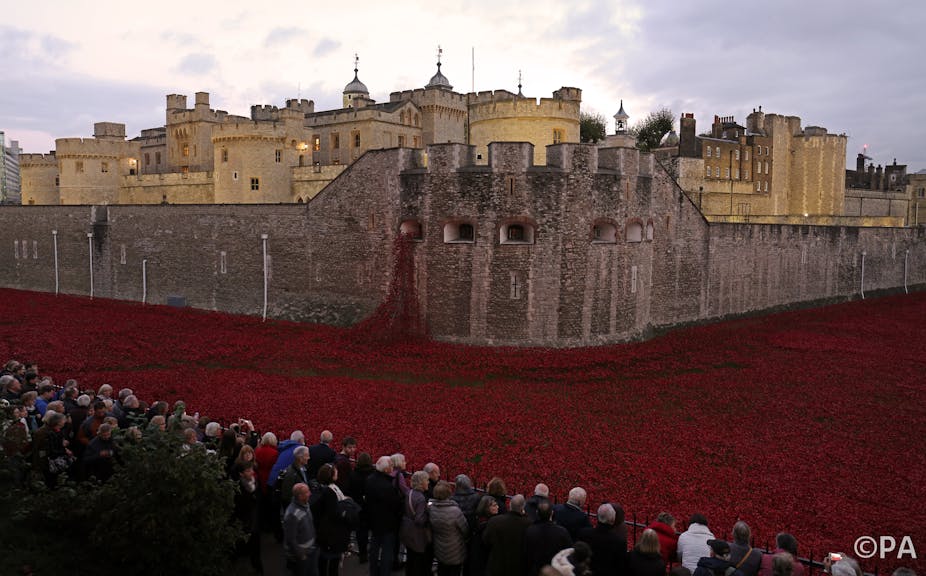Anyone who reads the newspapers in the build up to the Armistice Day commemorations in the UK would be hard put to deny there are still many unanswered questions around the public event of remembrance.
Can war ever be celebrated, or is it essentially futile? Do remembrance rituals, symbols and ceremonies do more to romanticise warfare than bring home its horror? Does the event of remembrance exclude the sacrifice of those who died on the opposing side? Disagreement abounds on these issues and we are unlikely to see a public consensus any time soon.
We should also think carefully about the part our schools play in these public events. Questions about war and peace can be addressed critically and with an appreciation of their ambiguity and complexity, across the curriculum – particularly through history, English and religious education.
But when we are considering a school’s participation in the public event of “remembrance”, there is an additional moral component. What is to be “remembered” is something most of us did not experience first hand. Teachers involved in remembrance are therefore involved in communicating content that we agree ought to be remembered – and encouraging appropriate sentiments in relation to what is remembered. Remembrance, viewed from an educational perspective, is better understood as a purposeful reminding.
So teachers need to consider what it is that students ought to be remembering, and why. Crucially, where there are open questions around involving students in events of remembrance, we must not proceed as if there is general agreement.
In a recent publication , I suggest that three justifications are often used to encourage young people to remember the war dead. For me, only one is relevant to teachers today. This matters, because it has implications for the kinds of events, rituals and symbols of remembrance that we might choose to reproduce in schools.
Gratitude
It is often argued that we ought to remember the sacrifice of the war dead as the fulfilment of a debt of gratitude to those who have died on our behalf in past or current conflicts.
Although I do not deny that many students will feel gratitude towards the war dead, and that we ought not to discourage such feelings, neither ought we to assume or encourage them, since no such debt of gratitude can be shown to be owed. For gratitude to be owed a gift must be freely given, and it must be of genuine value to us.
There are problems in many cases with seeing the lives of the war dead as having been freely given rather than taken. And the benefit to the living is usually thought of in terms of some enduring institution, political situation or shared set of values that would not have persisted without their sacrifice
It is hard to establish that these sacrifices either directly or indirectly brought about a state of affairs that is more beneficial to us or overall more morally acceptable than any alternative. In light of this, it is not appropriate in educational settings to encourage gratitude to the war dead, but rather to allow students to engage with the open question of whether a debt of gratitude is in fact owed.
Shared values
Another argument for marking war remembrance is that the values that we now hold are sufficiently dear that in the past people have been prepared to die to defend them. That means we ought to treasure and uphold these values.
The first problem with this is that a person’s being prepared to die for a set of values does not provide a warrant for upholding them. The second problem is the danger of a slippery slope that is eventually susceptible to political opportunism. Once the assumption of a historically continuous set of shared values is accepted, it requires only a short step to identify contemporary conflicts with those values.

As a result, the weight of past sacrifice is used to legitimise contemporary conflicts in which soldiers continue to die alongside the historical fallen. To question the legitimacy of these conflicts is to break faith not only with “our boys” overseas but with all of those who have died throughout history for the same values, as seen in the Royal British Legion’s injunction in 2011 that we stand “shoulder to shoulder with all who serve”. Promoting this false belief could discourage students from thinking critically about the legitimacy of this nation’s involvement in current conflicts and other conflicts in the future.
Horror
Whether we agree about debts of gratitude or shared value, there is one thing we can all agree on. War, whatever else it is, is always horrific. This horror is not dependent on scale. However revisionist we may be about the real conditions of the trenches in the “Great War”, for example, each single corpse collected from no-man’s land is one more body broken or destroyed by deliberate human action. There is also the possibility that some contemporary wars might not be justified. Yet there are also persuasive contemporary arguments that could be used to support involvement in conflict, such as the language of military heroism that has evolved since 9/11, or the need to defend our “British” values.
This adds up to a powerful justification for an educational event of remembrance. Reminding students of the horror of war will furnish them with some emotional resources that could go towards empowering them to resist or at least condemn unnecessary conflicts in the future.
By accepting that war needs to be remembered for its horror, but not for any sense of gratitude or upholding of shared values, schools should consider whether the rituals they engage in around remembrance successfully communicate that horror. Teachers should consider replacing associations with bright red flowers, pristine stone memorials, and elderly men wearing medals, with images or narratives of children killed or wounded in war.

